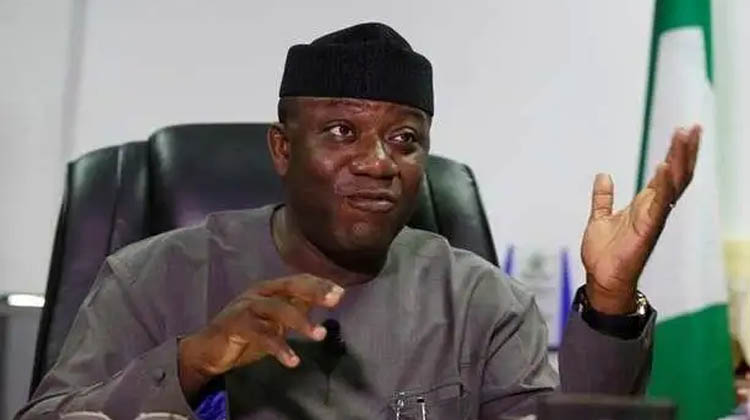A former Governor of Ekiti State, Kayode Fayemi, has reiterated the need for decentralised minimum wage negotiations.
He emphasized the importance of allowing states to conduct wage negotiations with labour unions, separate from the Federal Government.
Fayemi, a former chairman of the Nigerian Governors Forum, stated this during an interview on Channels Television’s Politics Today programme on Friday.
Fayemi stated, “The position of the Nigerian Governors Forum when I was governor and chairman of the forum, and I believe even till this recent negotiation, is that we should decentralise minimum wage negotiations and allow states to have their negotiations with their labour unions, whilst the Federal Government conducts its negotiation because fingers are not equal.”
Highlighting the disparity in resources among states, Fayemi noted, “The governor of Lagos State should not be earning the same salary as the governor of Ekiti State. He has more resources, but we all go by rank. And the N600,000 that I earn in Ekiti is what Governor Sanwo-Olu earns in Lagos.
“I don’t believe that we’re being real with ourselves. This should be decentralised, and each state should define in conjunction with their labour union, with transparency, all the records provided to the labour union that look, this is what we have.”.
He further explained the broader implications of a centralised minimum wage, noting that only a small percentage of the population benefits directly from these negotiations.
You are only five or ten per cent of our population. We also have 90 per cent of the population that we must attend to. Yes, you are 10 per cent and you probably cater to maybe four or five months each of you in your various homes. But the reality is that there are things that must come from the common pool to service the overall interests of all the citizens in the state or at the national level,” Fayemi said.
He criticised the current approach to minimum wage negotiations, describing it as dogmatic.
“Labour doesn’t want to hear anything about decentralized national minimum wage, and decentralized national minimum wage does not mean that what is paid at the state level will be lower than federal. In the 60s and 50s, civil servants in the western region used to earn more than federal civil servants,” he said.
Addressing the broader issue of constitutional reforms, Fayemi suggested a comprehensive approach by the president.
“I think if he (the president) should just collate all the works that have been done, the 2005 political reform committee work, the 2014 committee under the President Jonathan administration, all of these should be collated, including our own APC true federalism committee, and then combine and send it to the National Assembly as his memo, to be considered for enactment into law and the Constitution. And that should then be subjected to a referendum,” he said.
Fayemi also stressed the necessity of a national referendum on constitutional outcomes, stating, “I think that’s the part that is missing now, in the current constitution.
“We need a national referendum on whatever outcome of what the National Assembly produces.

